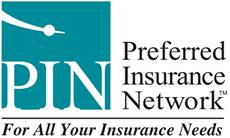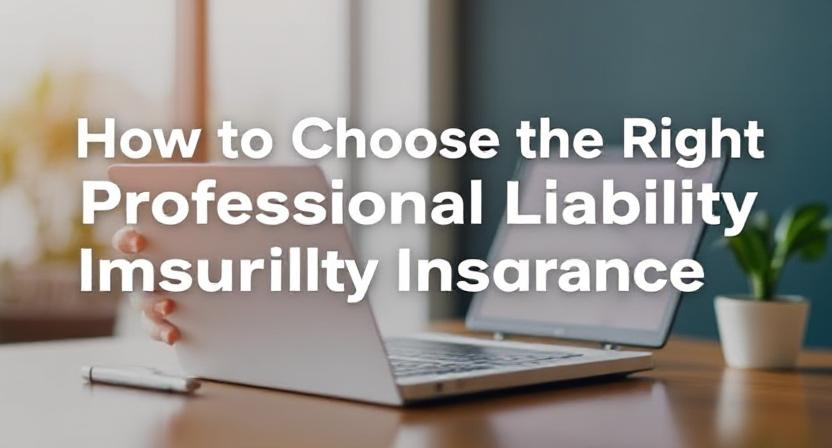When it comes to selecting the appropriate professional liability insurance for your business, it’s crucial to navigate through a myriad of considerations. Understanding your unique needs and risks is just the beginning. Evaluating coverage options, comparing providers, and factoring in cost considerations are all essential steps in this process. However, there’s one critical aspect that often goes overlooked but can have significant implications for the protection of your business. To ensure you make the right choice, you must pay close attention to the fine print of policy exclusions. This often overlooked detail can make all the difference in securing comprehensive coverage that shields your business from potential liabilities.
Discover Business Insurance Solutions Protect your business with comprehensive insurance plans designed for various industries. 🔗 View Options
Key Takeaways
- Assess business risks and size to determine coverage needs.
- Compare coverage options like professional liability, cyber liability, and legal expenses.
- Evaluate provider reputation, coverage options, and claims processing.
- Review policy exclusions for gaps in coverage.
- Balance cost and coverage to ensure adequate protection.
Understanding Your Business Needs
When considering professional liability insurance, the first step is understanding your business needs. Take a close look at the nature of your business, the services you provide, and the potential risks involved. Are you a healthcare provider needing coverage for malpractice claims or a consultant protecting against errors and omissions?
Assessing your specific risks will help determine the level of coverage required. Consider the size of your business, the number of employees, and the annual revenue. These factors can impact the amount of coverage needed and the cost of premiums.
Additionally, evaluate any contractual requirements from clients or industry regulations mandating certain types of coverage. Understanding your business needs is crucial in selecting the right professional liability insurance policy.
It ensures that you’re adequately protected in case of lawsuits or claims related to professional services rendered. By tailoring your coverage to your specific business requirements, you can mitigate potential risks and safeguard your financial well-being.
Evaluating Coverage Options
Understanding your business needs has provided you with a solid foundation. Now, as you evaluate coverage options for your professional liability insurance, it’s crucial to consider the specific risks your business faces. To make this process easier, take a look at the table below which outlines key coverage options to assess:
| Coverage Option | Description | Importance |
|---|---|---|
| Professional | Protects against claims of professional errors | Essential for service-based businesses |
| Liability | and negligence. | |
| Cyber Liability | Covers data breaches and cyberattacks. | Vital for businesses handling sensitive |
| customer information. | ||
| Legal Expenses | Covers legal fees in case of a lawsuit. | Helpful to avoid financial strain in |
| legal proceedings. |
Comparing Insurance Providers
As you embark on the task of comparing insurance providers for your professional liability coverage, it’s important to focus on key factors that will help you make an informed decision.
Start by evaluating the reputation and financial stability of the insurance companies. Look into their customer reviews and ratings to gauge their reliability and customer service.
Additionally, consider the specific coverage options each provider offers and how well they align with the needs of your business. Compare the premiums, deductibles, and limits of liability across different providers to ensure you’re getting the best value for your money.
It’s also essential to assess the ease of filing claims and the speed of claims processing, as these factors can significantly impact your experience in the event of a claim.
Reviewing Policy Exclusions
As you navigate the process of evaluating insurance providers for your professional liability coverage, a crucial aspect that demands your attention is the review of policy exclusions.
Understanding what isn’t covered in your policy is as important as knowing what’s covered. Here are some key points to consider:
- Specific Exclusions: Policies may exclude coverage for certain services or situations that aren’t within the scope of the policy.
- Intentional Acts: Most policies don’t cover claims arising from intentional or criminal acts committed by the insured.
- Prior Knowledge: Some policies may not cover claims related to incidents that the insured was aware of before the policy’s effective date.
- Contractual Obligations: Review if the policy excludes coverage for liabilities assumed under contract unless they’d have existed in the absence of the contract.
Carefully reviewing these exclusions will help you understand the limitations of your coverage and ensure you’re adequately protected against potential risks.
Cost Considerations
To make an informed decision on your professional liability insurance, it’s essential to address the crucial aspect of cost considerations.
When evaluating the cost of professional liability insurance for your business, it’s important to remember that the price you pay isn’t just a simple fee but an investment in protecting your assets and reputation.
While cost is a significant factor, it shouldn’t be the sole deciding factor. Look beyond the price tag and consider the coverage limits, deductibles, and any additional benefits included in the policy.
Cheaper premiums may mean lower coverage limits or higher deductibles, which could leave you vulnerable in case of a claim. On the other hand, higher premiums may provide more comprehensive coverage that better suits your business needs.
It’s advisable to strike a balance between cost and coverage to ensure you’re adequately protected without breaking the bank.
Frequently Asked Questions
Can I Cancel My Policy Mid-Term and Get a Refund?
Yes, you can cancel your policy mid-term and receive a refund. However, the refund amount might vary depending on the insurance company’s policies and the time left on your policy term. It’s best to check with your provider for specific details.
How Do Insurance Providers Handle Claim Disputes?
When claim disputes arise, insurance providers typically review the policy, investigate the circumstances, and communicate their decision. You may have the option to appeal or seek mediation. It’s crucial to understand your coverage and rights.
Will My Premiums Increase After Filing a Claim?
If you file a claim, your premiums may increase due to the perceived increase in risk. Insurance providers often adjust rates based on claim history. It’s a common practice in the industry to reassess premiums after a claim is filed.
Do Policy Limits Vary Based on the Type of Claim?
Yes, policy limits can vary based on the type of claim you have. It’s important to review your coverage to ensure it aligns with your business needs. Consult with your insurance provider to understand these details.
Are There Any Hidden Fees in the Policy?
Yes, there are sometimes hidden fees in insurance policies. Make sure to carefully review all terms and conditions to uncover any additional costs. Don’t overlook this step, as it could impact your overall coverage.
Conclusion
In conclusion, by understanding your business needs, evaluating coverage options, comparing insurance providers, reviewing policy exclusions, and considering costs, you can choose the right professional liability insurance for your business. It’s important to tailor your coverage to your specific risks and circumstances to ensure comprehensive protection. Take the time to research and compare different options to find the best fit for your business.

